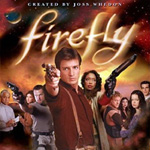This blog is in a state of suspended animation
I am much more active on twitter (@mark_haddon) and on instagram (@mjphaddon)
1) i'm cycling instead of running on account of dodgy back and had forgotten how glorious it is to be cranking up a big hill in the middle of nowhere. 2) the old arcadia byphilip sidney. an acquired taste perhaps. all readers, however, are allowed to skip the poetic eclogues. this book is not to be confused with the 'new' (longer, more complex, more 'moral') arcadia which has only ever been read in its entirety by 6 people. 3) woodstock road deli, home of the quality salad box to power the working novelist through the early afternoon. 4) quaristice by autechre. another acquired taste, perhaps, but i'm beginning to think this is a bit of a masterpiece. beep,squelch, boom, boom, squelch, beep etc. fantastic.

next monday (that's 27 september) i'm doing a 5x15 event at union chapel in islington along with louise doughty, andrew parker, ruby wax and kate daudy, each person talking for 15 minutes, some using music and pictures, though i'll be flying by means of the human voice alone. the lucinda belle orchestra will be providing halftime entertainment, rather, i hope, like val doonican used to do in the middle of the two ronnies. doors open at 6:30. more info via links below.
incidentally, i shall be talking about this:

he’d been looking forward to it for the last couple of weeks. a town of books. all this learning gathered in and offered up. trawling, browsing, leafing. but now that he was standing in the bowels of the cinema bookshop… that smell. what was it, precisely? glue? paper? the spores of some bibliophile lichen? catacombs of yellowing paper. every book unwanted, sold for pennies or carted from the houses of the dead. battersea books home. the authors earned nothing from the transaction. salaries less than binmen he’d read somewhere. he thought about their lives. no colleagues, no timetable, no security, the constant lure of daytime television. the formlessness of it all made him feel slightly ill, going to work in their dressing gowns. so much risk and so little adventure.
this is wonderful, intelligent, hugely readable and containing some long bravura passages (the protagonist serge carrefax's time as an aerial observer in the first world was unputdownable). but mccarthy has always professed himself to be, and always professed his work to be, deliberately avant-garde and (post)modernist, against lyrical realism, against liberal humanism, against mcewan/amis/barnes and against depth-psychology (... [the illusion] that there is a self prior to anything that exists prior to anything who goes around emoting, experiencing and developing. this is what i hate...)
... except that this novel isn't really any of those thing. it contains all the furniture of classic pynchon: spies, secret codes, conspiracy theories, eccentric scientific theories. but it doesn't mess with that queasy boundary between what might or might not be real as pynchon does. the events in c feel as if they could well have happened (wireless stations in Egypt between the wars, private clubs in Soho where one can take heroin in the company of other upmarket users...), reality tweaked but not undermined. true, it has a recurring theme of flatness but it is hugely lyrical. true, serge carefax is weirdly affectless, but weirdly affectless people are as interesting psychologically as the most florid of schizophrenics. true, the language is sophisticated and seductive but it pushes no boundaries and is fundamentally no different from the language used in many other contemporary english novels.
none of which, i think, detracts from how good a novel it is. not least because whilst i found pynchon, robbe-grillet, foster wallace et al rather thrilling when i first read them, when i pick them up nowadays i'm often a little disappointed to find an emotional thinness below the baroque playfulness. and not necessarily because i'm turning into an old fart. i'm still hungry for good experimental fiction, just harder to satisfy.
apropos of which, after coming across his recent obituary, i belatedly read david markson's wittgentstein's daughter, a self-consciously experimental novel which is formally daring, anti-sentimental and anti-psychological. and whilst a part of me cheered at markson's daring i simply wasn't very gripped.
if any fiction is to last it has to possess some human warmth (tristram shandy is funny, the trial is heart-breaking). like it or not, the novel is a liberal humanist form. it's a conversation and like any conversation depends upon the reader's good will. and whilst having an avant-garde conversation is not impossible but it's a bloody hard trick to pull off.
joyce and woolf are still the (unsurpassed) benchmarks. a radical vision of the world that demands a profound restructuring of the novel and its language, the whole being underpinned and sustained by... this sounds way too greetings-card, but both joyce and woolf deeply in love with human beings. i suspect mccarthy is too, though admitting it is hard after ranting loudly against liberal humanists.
oh, and this great, too, though i'm only halfway through. pete dexter (paris trout, deadwood?) is scandalously overlooked in this country, which is plain stupid. the cover, sadly, gives no real idea of the novel's energy and intelligence and the seriousness which underlies the comedy. we may see it only in passing and the plot may not hinge upon it, but it also happens to be one of the very few books i've read recently in which a man has sex with a chicken.
i stumbled on this the other day and i can think of no good reason for sticking it here except that i read it when i was a child, that i read very few picture books as a child which gives it a particular resonance, because it's still rather wonderful and therefore seemed to demand some small celebration. you're supposed to say that this kind of thing brings back all kinds of memories. but this doesn't bring back any memories at all. it just resurfaces, still shining, still gloriously itself.
.jpg)
and now, of course, i'm able to google racey helps.
i started reading two books on holiday and failed to finished them, which isn’t unusual, except that they were two self-evidently good books (the testament of gideon mack by james robertson and wildwood by roger deakin, whose waterlog went some considerable way to changing my life). back home i picked up the methuen book of royal court plays 2000-2010 and i was gripped, partly because of the quality of the writing and partly because i was learning something.
being a writer i spend way way too much time thinking about myself, in spite of which it had never occurred to me that i never read purely for entertainment. i watch enjoyably crap tv and films for entertainment (see below), but when i read i want to learn something, something about the world or, better still, something i can carry over into my own writing. consequently reading something really good is sometimes a slow business, as i keep pausing to ponder and scribble.
all of which led to another revelation, that contemporary british theatre is so much more vital than the contemporary british novel. there are shit plays, of course. lots of them. but where are the novels which show you what it’s like to be black and british in the way that the plays of roy williams do? where is the novel as brutal and hilarious and prescient as simon stephens’ motortown? where are the novels are persistently experimental as those of martin crimp and caryl churchill? where are the novels which get anywhere near the sublime horror of sarah kane’s work? where are the novels dealing with the wars in iraq or afghanistan (the tricycle put on 13 at the same time – the great game). where are the novels that pick you up and spit you out and make you think holy shit...
i know a novel is the quieter more conversational form. i know, most of the work i’m talking about is performed in subsidised, not-for-profit theatres (some of which will doubtless be culled in a couple of weeks’ time). i know, the audiences are smaller and more willing to be challenged, but, but, but…
oh well, maybe it’s just the time of the month.
(under a blue sky by david eldridge, fallout by roy williams, motortown by simon stephens, my child by mike Bartlett, enron by lucy prebble)
to my shame i'd never actually read it before, despite my love of middlemarch. i don't think any other writer manages a tone which achieves this effortless balance of mockery, empathy, humour, seriousness, insight and sheer delight in language. and i really don't think it's worth writing fiction unless you make some small attempt to write prose with this density and this grace:
Mrs. Glegg had both a front and a back parlor in her excellent house at St. Ogg's, so that she had two points of view from which she could observe the weakness of her fellow-beings, and reinforce her thankfulness for her own exceptional strength of mind. From her front window she could look down the Tofton Road, leading out of St. Ogg's, and note the growing tendency to "gadding about" in the wives of men not retired from business, together with a practice of wearing woven cotton stockings, which opened a dreary prospect for the coming generation; and from her back windows she could look down the pleasant garden and orchard which stretched to the river, and observe the folly of Mr. Glegg in spending his time among "them flowers and vegetables." For Mr. Glegg, having retired from active business as a wool-stapler for the purpose of enjoying himself through the rest of his life, had found this last occupation so much more severe than his business, that he had been driven into amateur hard labor as a dissipation, and habitually relaxed by doing the work of two ordinary gardeners. The economising of a gardener's wages might perhaps have induced Mrs. Glegg to wink at this folly, if it were possible for a healthy female mind even to simulate respect for a husband's hobby. But it is well known that this conjugal complacency belongs only to the weaker portion of the sex, who are scarcely alive to the responsibilities of a wife as a constituted check on her husband's pleasures, which are hardly ever of a rational or commendable kind.

stay tuned, 2010

super 16, 2010




misfits / mill on the floss / firefly / the mawddach estuary
photo of mawddach estuary by benefit of hindsight under creative commons on flickr